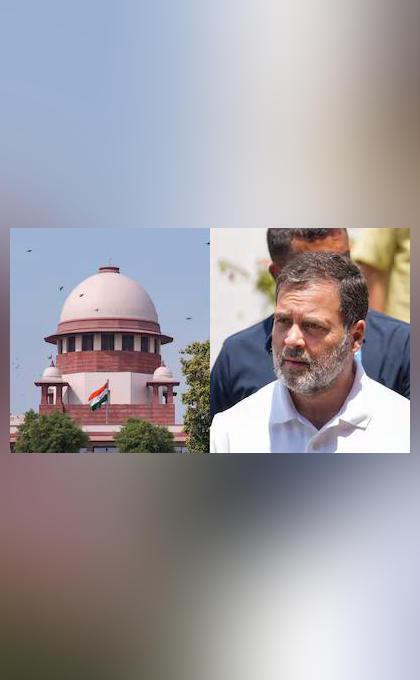
Why Ask on Social Media & Not in Parliament: SC to Rahul on ‘Land Grab’ Claim
The Supreme Court of India recently pulled up Congress leader Rahul Gandhi for his claim that China had grabbed 2,000 square kilometers of Indian land. The court’s rebuke came while staying a defamation case against Rahul for his remarks about the Indian Army.
Rahul Gandhi’s claim was made during a speech he gave in June 2020, where he alleged that China had occupied 2,000 square kilometers of Indian land. However, the Supreme Court has now questioned the basis of his claim, asking him how he knew that 2,000 square kilometers of land had been occupied.
The court’s criticism of Rahul Gandhi’s claim is not just about the accuracy of his statement, but also about the platform he chose to make it on. The court has suggested that if Rahul Gandhi had concerns about the Chinese occupation of Indian land, he should have raised them in Parliament, rather than on social media.
This criticism raises important questions about the role of social media in public discourse and the accountability of public figures. In an era where social media has become a primary platform for public engagement, it is important to consider the implications of using social media to make serious claims or accusations.
One of the main concerns with Rahul Gandhi’s claim is that it was made without providing any evidence or credible sources to back it up. The court’s question about how he knew that 2,000 square kilometers of land had been occupied highlights the lack of transparency and accountability in Rahul Gandhi’s statement.
In contrast, Parliament is a platform where public figures are expected to provide evidence and credible sources to back up their claims. It is a platform where they are accountable to the public and the media, and where they are expected to engage in a more nuanced and informed discussion.
The court’s criticism of Rahul Gandhi’s claim is not just about the accuracy of his statement, but also about the potential consequences of making false or unsubstantiated claims on social media. False claims can spread quickly and can have serious consequences, causing unnecessary panic and harm to individuals and communities.
Moreover, the court’s criticism highlights the importance of fact-checking and verification in public discourse. In an era where misinformation can spread quickly, it is essential that public figures take responsibility for verifying the accuracy of their claims before making them.
The court’s rebuke of Rahul Gandhi’s claim is also significant because it highlights the need for accountability in public discourse. Public figures have a responsibility to engage in informed and nuanced discussions, and to provide evidence and credible sources to back up their claims.
In conclusion, the Supreme Court’s criticism of Rahul Gandhi’s claim that China had grabbed 2,000 square kilometers of Indian land is a reminder of the importance of accountability and transparency in public discourse. It highlights the need for public figures to engage in informed and nuanced discussions, and to provide evidence and credible sources to back up their claims.
It also raises important questions about the role of social media in public discourse and the potential consequences of making false or unsubstantiated claims on social media. As public figures, we have a responsibility to engage in informed and nuanced discussions, and to take responsibility for verifying the accuracy of our claims before making them.






